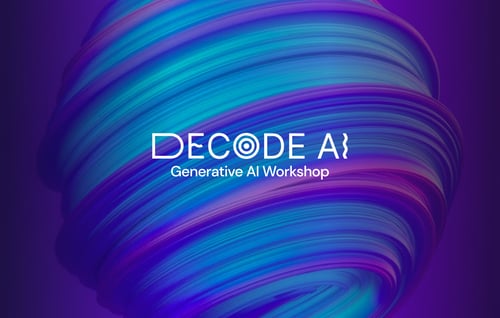Imagine we're stepping into a time machine. We’re going back to the mid-20th century, the birthplace of Artificial Intelligence (AI). There, we encounter a man named Alan Turing who, in 1950, proposed an intriguing question: Can machines think? This marked the spark of the AI revolution.
Fast-forwarding through the timeline, AI becomes more than an academic field of research. It starts creating waves. We witness AI's evolution from expert systems to modern wonders like Google's DeepMind learning to play video games, and the emergence of large language models like GPT-3. The march of AI from the realm of research labs to our daily lives has been relentless and transformative, redefining what's possible.
This evolution isn't unfamiliar, though. Consider the humble smartphone, which has transformed from a novelty into a staple of everyday life. There's a distinct pattern here. First, the innovators and early adopters embrace the technology. Then it piques the interest of particular communities, fostering the development of applications, tools, and products. Once a few of these innovations gain success, a surge follows, resulting in broad adoption and daily life integration. AI is riding the same wave. It started as an intellectual curiosity, grew into a specialist tool, and is now on the cusp of becoming as integral to our lives as smartphones. The key difference? The transformative potential AI holds for almost every facet of human life. This is why it's critical for us, particularly as designers, to keep a firm grip on this swiftly galloping horse.
The influence of AI in design is big and multidimensional. Design is not just about aesthetics, but also about creating meaningful experiences. AI enhances these experiences by automating repetitive tasks, providing new tools for creativity, and delivering personalised content based on data.
In our journey with AI, we're not alone. A myriad of tools are cropping up, promising to revolutionise our design processes, just as we've seen with applications like ChatGPT and Midjourney. But with these tools and processes comes a new challenge. We're faced with the task of discerning the truly transformative tools from the simply shiny new gadgets. It's essential we hone our ability to recognise which tools can genuinely amplify our creativity and productivity, rather than distract us with superficial features. Identifying the game-changers among the multitude requires careful evaluation and a solid understanding of our needs as designers. Yet, rest assured, finding the right AI tools is a journey worth embarking upon. Our existing tools aren't left behind either. From Figma and Adobe Suite to Miro, AI features are being integrated to expedite workflows and align with our evolving needs. It's not about working harder; it's about working smarter.
As we look to the future, AI holds immense promise. It allows us to envision design solutions that were once considered extraordinary. We're looking at predictive design powered by data, creating solutions even before a need arises. We're talking about automatic accessibility checkers ensuring we meet the ever-evolving internet standards, and even sustainability, using AI to design efficient systems that conserve resources.
However, with great power comes great responsibility. The incorporation of AI into design isn't without its ethical dilemmas. Remember J. Robert Oppenheimer and the narrative of the atomic bomb? The lessons from the past remind us that technological advancements should not eclipse ethical considerations. As designers, we're not just creating; we're impacting lives, and that warrants a deep sense of responsibility.
AI isn't merely a buzzword; it's a tool, a co-worker, and a crystal ball peering into the future of design. It's here, it's transformative, and it's a wave that's worth riding. To my fellow designers, if you haven't dipped your toes into the world of AI, now is the time. Familiarise yourself with the new tools, explore the possibilities, and most importantly, be part of the conversation surrounding its ethical implications. Remember, AI might not be there to take your job, but those who leverage AI certainly could. As we step into the era of AI, let's step in thoughtfully, armed with the wisdom of the past and the courage to shape the future.

Struggling to identify where and how to incorporate generative AI into your business strategy? Mobiquity's DECODE AI immersive 1-day ignition workshop helps you to delve deeper into the possibilities of gen AI and gain valuable insights along with actionable results. Walk away with a tailored portfolio of gen AI opportunities for your business, along with a detailed execution plan to drive real business value.
Sign up for the DECODE AI workshop
References
